COURSE OUTLINE
| Instructor: |
Dr.
Ewa Wasilewska |
| Office
hours: |
By
appointment only; please call the Department of Anthropology (581-6251)
and leave your name, phone number, and class number. |
| Time: |
Every
Monday and Wednesday at 8:00 a.m. to 11:00 a.m. |
| Location: |
Campus
ST 214 |
| Important
dates: |
May
21, 08 - last day to drop classes
May
27, 08 - last day to register, to elect CR/NC option or to audit classes
May
30, 08 - last day to withdraw from term length classes
June
13, 08 - last day to reverse CR/NC option |
| Required
Texts: |
All
required articles are on RESERVE (electronic or paper copies)in the Marriott library. They are listed
in order of topics discussed under specific class meetings. |
| Optional
Texts: |
Ewa
Wasilewska: Love, Sex, and Family in the Middle East. Notes. 2008. (EW)
Notes
can be purchased during the first three class meetings. |
| Course
description: |
This
course focuses on various aspects and attitudes toward love, sex, and family
in the Middle East. It examines them since the earliest available written
records until modern period. Special emphasis is paid to selection of marriage
partners and societal expectations of young people. |
| Requirements: |
All
students are expected to attend lectures and read required material. There
are three, take-home, exams (no more than 5 pages each; typed;double-space)
especially designed for the type of material covered by specific lectures
and by required readings. Each undergraduate student will be required
to write a final research paper (10 pages plus bibliography) on the topic
related to the class material. This paper must be turned in on July 31, 2008.
GRADUATE
STUDENTS
In
addition to the requirements listed above, graduate students are required
to write a research paper of ca. 20 pages (plus bibliography). Each topic
must be discussed with the instructor first. It must be turned in by the
end of the term semester (July 31, 2008). |
..
Meeting
# 1 - May 12, 2008
The
Middle East: geographical and historical introduction.
Readings
- EW: H. #1
Eickelman,
Dale F.: Anthropology, the Middle East, and Central Asia. In The Middle
East and Central Asia. An Anthropological Approach. Prentice-Hall,
Inc. 1998. Pp. 1-26.
Soden,
Wolfram von: Chapters I-III. In The Ancient Orient. An Introduction
to the Study of the Ancient Near East. William B. Eerdmans Publishing
Company. 1994. Pp. 1-20. |
........... |
|
Meeting
# 2 - May 14, 2008
Family
as a formalized and/or traditional institution.
Various
types of marriages.
Readings
- EW: H. #2
Eickelman,
Dale F.: Personal and Family Relationships. (whole chapter #7). Naming.
Women, Men, and Sexuality (part of chapter 8). In The Middle East and
Central Asia. An Anthropological Approach. Prentice-Hall, Inc. 1998.
Pp. 147-199.
Haeri,
Sharla: Introduction. Marriage as Contract. Permanent Marriage: Nikah.
In Law of desire. Temporary Marriage in Shi’i Iran. Syracuse University
Press: 1989. Pp. 1-48.
Ahmed,
Leila: Women and the Rise of Islam. In Women and Gender in Islam.
Yale University Press:1992. Pp. 41-63. |
........... |
|
Meeting
# 3 - May 19, 2008
| Birth
and childhood. A matter of honor.
Readings
- EW: H. #3
Al-Khayyat,
Sana: The Pressure to Conform. In Honour and Shame. Saqi Books.
1990. Pp. 21 -56.
Guthrie,
Shirley: Fertility, Health and Childcare. In Arab Women in the Middle
Ages. Saqi Books: 2001. Pp. 41-64. |
........... |
|
TAKE
HOME EXAM - to be turned in by May
28, 2008
Meeting
# 4 - May 21, 2008
The
marriage route: spousal selection and the first days “thereafter.”
Readings - EW: H. #4, 5
Al-Khayyat,
Sana: Choosing a Partner. In Honour and Shame. Saqi Books. 1990.
Pp. 57 -78.
Guthrie,
Shirley: Contraception and Abortion. In Arab Women in the Middle
Ages. Saqi Books: 2001. Pp. 64 -78. |
........... |
|
Meeting
# 5 - May 26, 2008
MEMORIAL DAY!
Meeting
# 6 - May 28, 2008
| Dos
and don’ts of the marriage life: procreation, adultery, gossip, seclusion.
Divorce. Part 1.
Readings
for MEETINGS #6, 7 - EW: H. #6, 7
Schumann,
Ruth Antelme & Stephane Rossing: The Sexuality of the Human World.
In Sacred Sexuality in Ancient Egypt. Inner Traditions. 2001. Pp.
50-68.
Esposito,
John L. and Natana J. DeLong-Bas: Classical Muslim Family Law. In Women
in Muslim Family Law. Syracuse University Press: 2001. Pp. 12-37 |
........... |
|
Meeting
# 7 - June 2, 2008
| Dos
and don’ts of the marriage life: procreation, adultery, gossip, seclusion.
Divorce. Part 2.
TAKE
HOME EXAM - to be turned in by June
18, 2008 |
........... |
|
Meeting
# 8 - June 4, 2008
| All
about sex. Part 1.
Movie:
History of Sex.
Readings
for MEETINGS #8, 9 - EW: H. #8, 9
Al-Khayyat,
Sana: Worlds Apart: Sexual Life for Women and Men. In Honour and Shame.
Saqi Books. 1990. Pp. 79 -- 96.
Haeri,
Sharla: Women’s Life Stories. In Law of desire. Temporary Marriage in
Shi’i Iran. Syracuse University Press: 1989. Pp. 105-146.
Schumann,
Ruth Antelme & Stephane Rossing: Uncommon Sexual Practices. In Sacred
Sexuality in Ancient Egypt. Inner Traditions. 2001. Pp. 139-149.
Roth,
Martha T.: Bestiality laws in the chapter on Hittite Laws. In Law Collections
from Mesopotamia and Asia Minor. Scholars Press: 1997. Pp. 236-237.
* Schumann,
Ruth Antelme & Stephane Rossing: The Erotic Papyrus of Turin. In Sacred
Sexuality in Ancient Egypt. Inner Traditions. 2001. Pp. 150-161.
* Varone,
Antonio: Eroticism In Pompeii. The J. Paul Getty Museum. 2001.
*
Warning! Sexually explicit material! |
........... |
|
Meeting
# 9 - June 9, 2008
| All
about sex. Part 2. |
........... |
|
Meeting
# 10 - June 11, 2008
Aging,
death, and inheritance.
Readings
- EW: H. #10
Esposito,
John L. and Natana J. DeLong-Bas: Classical Muslim Family Law. In Women
in Muslim Family Law. Syracuse University Press: 2001. Pp. 37-46
Wasilewska,
Ewa: Nor Shall They Grieve: Death and Afterlife in the Qur’an: Part One.
In The World & I. The Washington Times Corporation. September
2002. Pp. 153-161.
Wasilewska,
Ewa: So the Soul Can Rest. Death and Afterlife in the Qur’an: Part Two.
In The World & I. The Washington Times Corporation. October
2002. Pp. 156-169. |
........... |
|
Meeting
# 11 - June 16, 2008
Meeting
# 12 - June 18, 2008
Odds and Ends: Movies and discussion.
Movie:
A Summer in La Goulette. Tunisia 1996. (MEC collection).
Movie:
Leila. Iran. (MEC collection).
Movie:
Divorce Iranian Style (MEC collection).
Movie:
Man of Ashes. Tunisia. 2000. (MEC collection).
Movie:
Yol (Marriott Library).
For
your final (take-home) exam, please select three movies to watch. Then,
write a comparative critique of these movies using class lectures and readings
and, in the process, answer the following question: Which of three selected
sexual behaviors/customs in the Middle East do you consider to be most
interesting/shocking/unusual, etc. and why? Please provide specific examples.
July 31, 2008 - final
exams and research papers must be turned in to the Dept. of Anthropology,
ST. Build. 102.
 IMPORTANT!!! IMPORTANT!!!
ACADEMIC MISCONDUCT
Please familiarize yourself with the University of Utah CODE OF STUDENT RIGHTS AND RESPONSIBILITIES (“STUDENT CODE”) at www.admin.utah.edu/ppmanual//8/8-10.html
The following is an excerpt from this CODE explaining specific actions, which won’t be tolerated in this class.
“2. “Academic misconduct” includes, but is not limited to, cheating, misrepresenting one's work, inappropriately collaborating, plagiarism, and fabrication or falsification of information, as defined further below. It also includes facilitating academic misconduct by intentionally helping or attempting to help another to commit an act of academic misconduct.
a. “Cheating” involves the unauthorized possession or use of information, materials, notes, study aids, or other devices in any academic exercise, or the unauthorized communication with another person during such an exercise. Common examples of cheating include, but are not limited to, copying from another student's examination, submitting work for an in-class exam that has been prepared in advance, violating rules governing the administration of exams, having another person take an exam, altering one's work after the work has been returned and before resubmitting it, or violating any rules relating to academic conduct of a course or program.
b. Misrepresenting one's work includes, but is not limited to, representing material prepared by another as one's own work, or submitting the same work in more than one course without prior permission of both faculty members.
c. “Plagiarism” means the intentional unacknowledged use or incorporation of any other person's work in, or as a basis for, one's own work offered for academic consideration or credit or for public presentation. Plagiarism includes, but is not limited to, representing as one's own, without attribution, any other individual’s words, phrasing, ideas, sequence of ideas, information or any other mode or content of expression.
d. “Fabrication” or “falsification” includes reporting experiments or measurements or statistical analyses never performed; manipulating or altering data or other manifestations of research to achieve a desired result; falsifying or misrepresenting background information, credentials or other academically relevant information; or selective reporting, including the deliberate suppression of conflicting or unwanted data. It does not include honest error or honest differences in interpretations or judgments of data and/or results.”
The following sanctions will be imposed in this class for a student engaging in academic misconduct:
1. A failing grade for the specific assignment, paper, exam, etc., without possibility to re-write it, re-take it, etc. This academic misconduct will be reported to the Chairman of the Department of Anthropology.
2. The second offense will be sanctioned with a failing grade for the whole course. In such a case, the following rule of the University of Utah CODE OF STUDENT RIGHTS AND RESPONSIBILITIES is applicable and will be followed: “If the faculty member imposes the sanction of a failing grade for the course, the faculty member shall, within ten (10) business days of imposing the sanction, notify in writing, the chair of the student’s home department and the senior vice president for academic affairs or senior vice president for health sciences, as appropriate, of the academic misconduct and the circumstances which the faculty member believes support the imposition of a failing grade.”
3. For more information concerning sanctions for academic misconduct (additional sanctions might be imposed) and your rights and procedures to appeal these sanctions please refer to the aforementioned CODE.
If you need more information and/or explanations please don’t hesitate to contact the instructor.
Ewa
Wasilewska's Home Page |




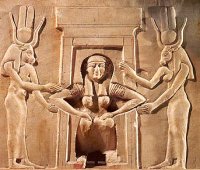
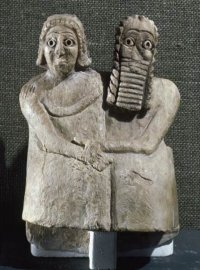

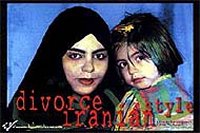
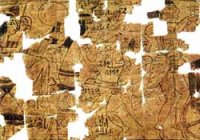
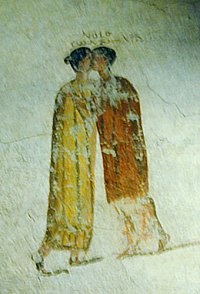


 IMPORTANT!!!
IMPORTANT!!!